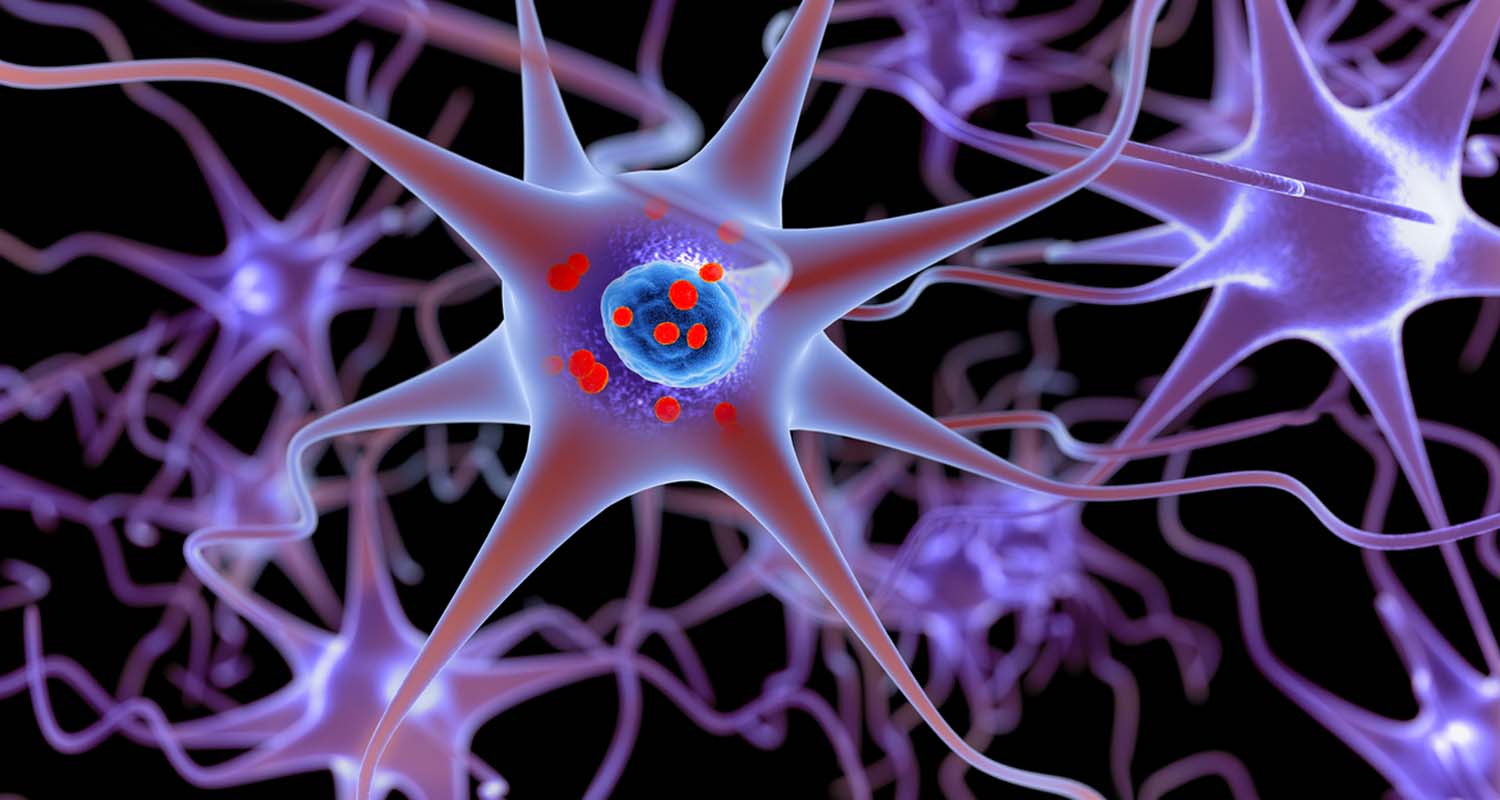
It’s time to set the record straight about the effects of nicotine on your brain. Nicotine — an oily liquid made by plants to keep bugs and animals away – is in the same chemical family as caffeine. And like caffeine, nicotine received a bad rap for a long time, particularly because it’s the major stimulant in tobacco and cigarettes. However, over the years, science has also discovered several beneficial effects of nicotine on the brain, particularly for people with Alzheimer’s, Parkinson’s, ADHD, or schizophrenia.
“Nicotine – the perfect psychotropic drug”
In a recent Bulletproof Radio podcast episode (iTunes), Paul Newhouse, MD, the world’s pioneering researcher of nicotine’s effect on the brain and current director of the Vanderbilt Center for Cognitive Medicine, revealed what’s so amazing about nicotine, when you separate it from tobacco.
“In some respects, [nicotine] is the perfect psychotropic drug because if you’re de-aroused, it will arouse you. If you’re over-aroused, or hyper-aroused, it will calm you down. It will bring you more into sort of that middle ground.”
Newhouse shared that some people – with depression, anxiety, and mood disturbances, in particular — benefit immensely from nicotine, because it brings them back into balance.
So, how is it possible that something so vilified could have such a positive effect on your brain?
Nicotine enhances overall cognitive performance
When nicotine reaches your brain, it binds to nicotine receptors, activating specific cognitive pathways that control attention, memory, motor function, and pleasure.[ref url=”https://www.ncbi.nlm.nih.gov/pubmed/1579636″] In this way, nicotine enhances coordination[ref url=”https://www.ncbi.nlm.nih.gov/pubmed/14668975″][ref url=”https://www.ncbi.nlm.nih.gov/pubmed/3786334″], improves your ability to pay attention[ref url=”https://link.springer.com/article/10.1007/s002130050857%23page-1″][ref url=”https://academic.oup.com/ntr/article-abstract/4/2/185/1013235″], boosts your short-term memory[ref url=”https://www.ncbi.nlm.nih.gov/pubmed/9888618″][ref url=”https://www.ncbi.nlm.nih.gov/pubmed/12858319″], accelerates your reaction time[ref url=”https://www.gwern.net/docs/nicotine/1996-foulds.pdf”], and suppresses your appetite, especially when you combine it with caffeine.[ref url=”https://onlinelibrary.wiley.com/store/10.1002/neu.10147/asset/10147_ftp.pdf?v=1&t=ihnrmd2b&s=ea2034cb01fc4c3c26aed20059be45435bf2d411″]
Several studies in the past 40 years also reveal nicotine’s powerful effects on specific brain diseases.
Nicotine’s effect on Parkinson’s, Alzheimer’s, ADHD, and schizophrenia
Nicotine effects dopamine levels in people with Parkinson’s
In 1979, UCLA neurobiologist Marie-Françoise Chesselet demonstrated how nicotine increased levels of the neurotransmitter, dopamine, in the brain.[ref url=”https://www.sciencedirect.com/science/article/pii/0024320579904697?via%3Dihub”] Dopamine is a feel-good chemical that governs attention and controls movement. Chesselet found that because nicotine receptors sit right next to the terminals that control dopamine release in the brain, nicotine actually enhanced the release of dopamine. Since dopamine controls body movement, nicotine has the power to stop uncontrolled body movement.
When would this be relevant? Think Parkinson’s disease, a disease that ravages your ability to control your own movement and is characterized by shakes, tremors, and tics. As nicotine drives up the release of dopamine, the feel-good chemical helps moderate those otherwise uncontrolled body movements brought on by Parkinson’s.[ref url=”https://www.ncbi.nlm.nih.gov/pmc/articles/PMC3685410/”]
Nicotine’s effect on memory and mood in Alzheimer’s patients
In a 1988 pilot study, Newhouse demonstrated the pronounced effects of nicotine on the brain in Alzheimer’s patients.[ref url=”https://www.ncbi.nlm.nih.gov/pubmed/3137593″] After six patients received intravenous nicotine, cognitive tests revealed decreased memory impairment, as well as fewer mood-related disturbances like anxiety and depression.
More recently, Newhouse’s research in a double-blind pilot clinical trial revealed that six months of 15 mg of nicotine daily benefits those with milder forms of cognitive impairment (MCI).[ref url=”https://www.ncbi.nlm.nih.gov/pmc/articles/PMC3466669/”]
And the research is growing. Nicotine may also help those with Parkinson’s and Alzheimer’s due to its ability to work as an antioxidant – cleaning up free radicals – thereby protecting the brain from harm.[ref url=”https://www.ncbi.nlm.nih.gov/pubmed/10381559″]
Nicotine’s effects on the attention span of people with ADHD
In a 2008 study, Newhouse demonstrated that after only 45 minutes of wearing a 7-mg nicotine patch, young adults with attention deficit hyperactivity disorder (ADHD) better-remembered images they had seen previously.[ref url=”https://www.ncbi.nlm.nih.gov/pubmed/15083253″]
Nicotine is effective at blocking out overwhelming stimuli for people with schizophrenia
Nicotine also has the effect of minimizing stimuli – sights, sounds, and thoughts — that overwhelm people with schizophrenia.[ref url=”https://www.nature.com/articles/nm.4274?WT.feed_name=subjects_biological-sciences”] This effect allows people with schizophrenia to pay attention more easily without as many internal distractions.
The Bulletproof approach to using nicotine
Whether you suffer from mild or major brain impairment – you may wonder if nicotine will work for you. And you should consider it carefully because nicotine does have a downside.
Because nicotine activates dopamine’s “pleasure pathway” in much the same way food, sex, love, and other rewarding drugs can do, it is highly addictive. All of these substances send a euphoric rush of dopamine through your system, leaving you feeling good, though craving more. Indulging on a regular basis dulls the pathway though, so it’s a bit of a double-edged sword.
So foremost, if you decide to use nicotine, talk to your doctor to make sure it’s appropriate given your particular scenario. If, as a team, you decide to go for it, you’ve got options on how to use it. There are gums, sprays, patches, and lozenges. Of course, there are cigarettes, though that is definitively not the way you want to reap the benefits of nicotine due to all the other nasties in a puff of smoke.
Read this to learn the Bulletproof approach to using nicotine as a smart drug. You’ll discover that the safest way to get nicotine is orally or through a wearable patch. You’ll also learn what you want to avoid (Hint: Nutrasweet) in some of those oral nicotine forms.












